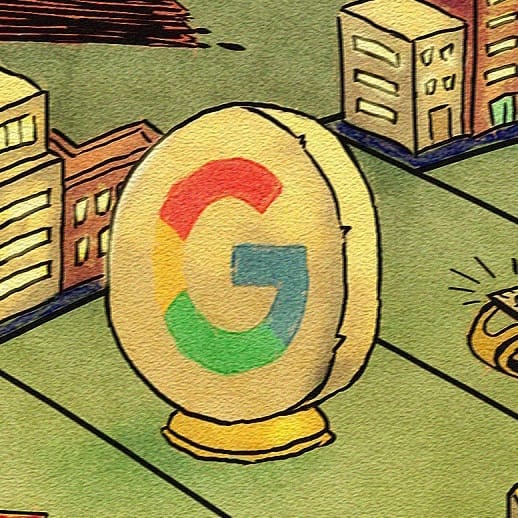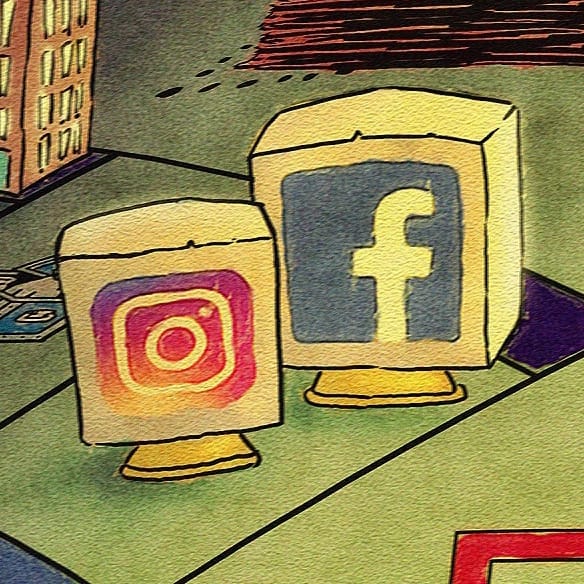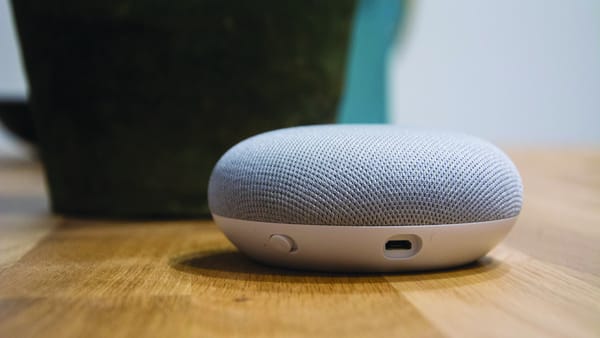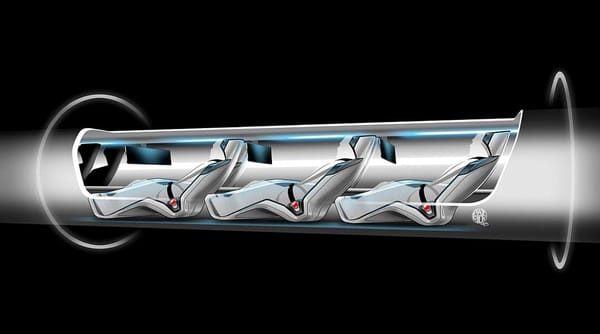The making of a modern monopoly
How the tech industry exemplifies the danger of monopolies – and what lessons history can teach us

In 1858, the British Crown bailed out and nationalised the most powerful company in human history. A company that had a standing army of 280,000 men, which it used to enslave a 6th of humanity and rule over an area in excess of 5 million km2. In fact, such was the power and influence of the British East India Company that even the Acts of Union of 1707 that merged the Kingdoms of England and Scotland were only made possible by bribing Scottish MPs with company shares. The East India Company was a behemoth – its power stemming from its legislated monopoly over all international trade to and from India, culminating in 15% of all British exports having to go through the Company. However, the Indian Mutiny of 1857, which was caused by the Company’s bigoted policies, almost brought down Britain’s colonial experiment in South Asia, and served as a warning to halls of Westminster. It was then understood the danger of an all-powerful corporation controlling the levers of power and the need for legislative oversight. Therefore, the Government of India Act of 1858 represented the first major corporate monopoly crackdown.
Whilst we do not have a direct equivalent to the East India Company anymore, in an increasingly digital world we have allowed newer overlords to creep in: is Amazon an online retailer, cloud storage provider, or a media production house? Is Google a search engine, an advertising platform, or a consumer electronics developer? These leviathans of the IT world have stretched far beyond their initial roles, and are now integral parts of all walks in life. This is an example of the concentration of wealth occurring in all sectors of industry, but nowhere is this happening more than the in tech sector. In many ways, the likes of Facebook and Google are the heirs of the East India Company in the power and influence they hold. Facebook may not have an army or the power to tax millions of people like the East India Company, but nonetheless, subconsciously we have voluntarily created an Orwellian Big Brother, one which knows every aspect of our lives. Civil-libertarians have been quick to cry out over the overreach of government surveillance, yet the same intensity of response is rarely given to social-media. A few billionaires can control where we go, what we watch, and even how we think. The truth is there is no need for big government anymore; the silent assassin to our privacy is not involuntary search and seizure by government bureaucrats, because everything that there is to know is already out there.
Recent events have shown how powerful these handful of social media apps can be: platforms like Facebook and Twitter have helped overthrow brutal dictators in Tunisia and Egypt during the Arab Spring, but also provided Russia’s propaganda arm in sewing the rise of far-right politicians in the West. If the radio paved the way for Franklin Roosevelt to enter the White House and television produced John Kennedy, then TV’s successor was not so generous. Social media’s Frankenstein's monster is Donald Trump, with a recent Bloomberg study finding that Twitter would lose $2 billion of its value were Trump to leave the platform. Scarily, the FBI have confirmed that the Russian government purchased over USD $100,000 in Facebook ads during the last election, a fact initially denied by Facebook, who were even unwilling to cooperate with Robert Mueller's investigation into foreign influence in the election – a clear example of a tech monopoly devoid of social responsibility.
This brazen disregard for law enforcement is not new to big business. When Apple refused to assist the FBI in hacking into the iPhone of the terrorist couple in San Bernardino, many saw it a defense of civil liberties, but it was also an example of big business being above the law. These tech plutocrats are acting like the banking, railway, and oil barons of the Gilded Age in creating an atmosphere where they are above the legal system. We are at a fork in the road: should the the status quo continue by letting our tech overlords get bigger and stronger, or should take stronger anti-trust measures be taken?
It is important to remember that we have been down this road before. In the waning decades of the 19th century, with the recognition that the Industrial Revolution was here to stay, almost all sectors of the economy were dominated by tycoons of industries. In America, the financier JP Morgan created the bank that would fund governments on both sides of the First World War, the steel magnate Andrew Carnegie helped the US leapfrog the UK as the world's largest steel producer, with his own company producing over 2,000 tons a day, and finally the oil baron John D Rockefeller, who founded Standard Oil, revolutionized oil refining – at his peak he controlled 90% of all oil produced in the United States.
The monopolies that grew in the late 19th century in America forced a realignment in the spectrum of American politics. From the end of Reconstruction till 1902, when Teddy Roosevelt assumed the Presidency, governments from both parties employed non-interventionist policies and let the plutocrats run roughshod on the economy. Public sentiment, however, did not correlate with government policies. Mass resentment amongst the masses almost propelled anti-trust crusader William Jennings Bryan to the White House in 1896. Jennings' meteoric rise sent shock waves – not only did he run a surprisingly close race against the Republican nominee William McKinley, but he also ran against his own party's record on allowing big corporation getting bigger. Thus when Teddy Roosevelt succeeded McKinley as President, the Gilded Age gave way to the Progressive Era.

Roosevelt aggressively used the Sherman Antitrust Act to break up the likes of Standard Oil (precursor of Exxon Mobil) and the railway monopolies of the Northern Securities Corporation. By the end of his presidency, Roosevelt had brought 44 antitrust suits, far surpassing the 18 anti-trust violations under the Sherman Antitrust Act filed by his predecessors Benjamin Harrison, Grover Cleveland, and McKinley combined. The trust-busting legacy was cemented by Roosevelt's two immediate successors, William Howard Taft and Woodrow Wilson. In many ways Taft's Justice Department went even further, filling over 70 anti-trust suites in just four years, most notably breaking up United Steel. In fact, the political spectrum had moved so far that in the election of 1912 even the Socialist Party candidate Eugene Debs won over 6% of the vote.
Corporations are not immoral, but amoral. They are not living entities with a conscience on the environment, social justice, or workers’ rights because they are not designed as such. They have a singular fiduciary duty to their shareholders, and their drive for ever increasing profits actually helps the economy in a truly competitive market to reduce prices and increase competitiveness. The Gilded Age, however, was not a period of free and open markets. Such concentrations of wealth as seen during the Gilded Age were intrinsically anti-democratic, and resulted in mass social and urban upheavals. Monopolies prevented the establishment of unions, as workers were left with no choice but to accept the conditions set out by management. When only one company dominates any sector, workers have little bargaining power as they can’t threaten to leave and join a competitor. We have, as a result, the iconic images of cities in the 19th century where children worked in dangerous coal mines for 18 hours at a go. Titans of industry seemed to care little about the public good, with William Henry Vanderbilt responding to the journalist John Dickinson Sherman by saying "Public be damned".
In the age of Trump, the trust-busting legacies of the 1910s provide progressives and liberals their own populist avenues. The vast small business of America, such as retail stores, have not closed-down because of immigrants, but as a result of the rise of the likes of Amazon. Their decision to buy Whole Foods earlier this year should have frightened US Government regulators. Through that acquisition, and if more are allowed to happen, Amazon could literally control the entire supply chain in a given sector: from the farm to the supplier to the retailer. Many people agree that the rise of Amazon – which operates on a slow-burn model rendering short-term profits meaningless, instead reinvesting back into the company – has resulted in the fall of small and local businesses. In a report published by the US nonprofit Institute for Local Self-Reliance, it was estimated that Amazon has resulted in a net-loss of 149,000 retail jobs across America. Small business simply cannot afford to lose millions of pounds for years on end as Amazon had done in the recent past.
However, Amazon’s profitless growth should not be misconstrued. By reinvesting their revenues, they have reduced their profits and, in doing so, their direct tax liabilities. In the last fiscal year, although Amazon’s UK sales revenues totaled £1.46 billion, its UK corporate Tax Bill was only £7.4 million due to their much lower profit margin. Moreover, while Amazon’s reinvestment may have diminished profits, the business model has resulted in the meteoric rise in their share prices. Due to archaic taxation laws in the US, online retailers previously gained an “unfair advantage” over their traditional peers, as per an editorial published by The New York Times: before 2009 (when the Supreme Court intervened), online retailers did not have to collect sales tax, thus creating an unequal playing field between them and many brick-and-mortar small businesses. Moreover, lobbying efforts have created an inverse Robin Hood effect: In Washington DC, through campaign donations (which former President Jimmy Carter has called ‘legalised bribes’), Amazon spent over $3.2 million in the second quarter of this year alone. Thus is it any surprise that the recent congressional tax reform bill would give billions of tax breaks to large corporation at the expense of the middle class paying more through the removal of deductions? In a recent report, it was noted that the state of North Carolina was offering tax incentives to Amazon in the hopes of securing a $5 Billion HQ office when at the same time Amazon is already receiving $1.2 billion subsidies from existing projects. In a race to the bottom, American states are blowing up their budgets with deficits caused by corporate favors. Small business can not afford such luxuries.
This may be a David and Goliath battle, but there will be no underdog victory; open and free markets are making way to privately controlled ones, with the lever of power in the hands of an ever-shrinking few. The business model of the 20th century may have encouraged oligarchical tendencies, with the rise of multinationals due to globalization, but it nonetheless still ensured some measure of internal competition. Intrinsically, the industries of yesterday did not revolve around the necessity of exclusiveness. Take the automobile industry as an example: through consolidation and mergers the global field is dominated by a handful of firms – but the success of Toyota doesn’t depend on the complete elimination of Ford or Mercedes. On the contrary, even with the limited competition, firms have had to innovate, and in doing so have increased their profit margins. However, in the tech world today, the entire model is structured on a ruthless Darwinian survival of the fittest. The reason Facebook is such an effective platform is because everyone is in it. The success of Facebook is predicated on its universal use, and directly correlated to the extinction of Myspace. If Facebook were a country, it would be the largest by population, with 2 billion active users as of June 2017, not including its subsidiaries like WhatsApp.
The power and influence of platforms like Facebook haven’t yet reached their peak, however. Facebook has become pivotal in modern culture and communication, and it is slowly becoming a vital aspect of employment as well. Facebook will cease to be a luxury and become a necessity in the job market. What protections will there be if Facebook then decided to introduce a monthly subscription fee? Moreover, Facebook’s writ is ever expanding, such that employers regularly check their social media activity of applicants. Any small mistake an individual might have privately done will now adversely affect their job prospects for decades, if said incident were to be captured and preserved on Facebook.
The risk of no alternative choices was seen earlier this year in the online video sharing sector, with YouTube controlling over 75% of the global market share: when YouTube decided to demonetize videos with “controversial titles” as per its new algorithm, video creators were left with little option than accept their reduced revenues. Whilst YouTube’s intent may have been genuine in protecting advertisers from the perception that they are associated with racist videos, the absence of human judgment in algorithms meant most of the creators that were punished were innocent. Scarily those most affected were serious but small and independent YouTube news and current affairs shows that may have ‘controversial’ titles in their videos like war, religion, and death but discussed them in a somber manner. More young people get their news from YouTube than any TV Channel, so what protections will there be if in the future YouTube decides to impose censorship for a more nefarious reasons?
This dangerous slippery slope is not a fictitious conspiracy theory: earlier this year, the Washington Post, which brought down the presidency of the Richard Nixon and is now owned by Amazon founder Jeff Bezos, disciplined Fredrick Kunkle, one of its op-ed writers, for publishing a critique of Amazon’s anti-union policies in the Huffington Post. Even Donald Trump, a man of questionable intelligence, has been correct in saying that the Washington Post has to potential to become a propaganda arm for its tech billionaire owner, thus proving that even a broken clock is right twice a day.
Silicon Valley and its international brethren are no longer ecosystems of genius ideas created in the back of a garage as it was till the early 2000s. If current trends are not halted, there will only be 30 major technology firms in 2030, and that too will shrink to 10 by 2050. Increased consolidation not only cannibalizes capitalism in restricting choices – it perpetrates a vicious cycle that prevents new and fresh ideas from developing. For example, had in the 1990s Yahoo been as powerful as Google is today, would Google have had the air to breath, within a few years leapfrogging its older and stronger rival?
Thus, if there is a realization of the dangerous power these tech firms wield, why then are they allowed to get even bigger? With ever increasing mergers, take-overs, and consolidation in the tech industry, where the Internet was once considered a fair and open environment it is increasingly dominated by a handful of firms. The few social media apps that manage to slip through the reach of Facebook – namely Snapchat or Instagram – soon find themselves being engulfed by it.
Whilst the politics of the early 20th century was dominated by anti-trust sentiments and a realization of how dangerous they were, in the present day tech oligarchies aren’t viewed with suspicion, but admiration. The recent insurgent campaigns of both Jeremy Corbyn and Bernie Sanders had a shared theme of breaking up the ‘too big to fail’ financial institutions, but while progressives have in recent times rightly cautioned against big pharma or big oil, the silence on big tech has been deafening. Firm like Google, with slogans like “don’t do evil” and relaxed working environments, with special perks like free food, have fostered immense good-will. Computer scientists and engineers are held at a higher pedestal than bankers by society, and as a result tech firms are given a incredible leeway compared to other industries. For decades, the media empire of Rupert Murdoch has intimidated Prime Ministers from both parties into acquiescing his takeover and domination in print journalism. However even Murdoch has still been unable to increase his ownership share in Sky beyond the current 39% due to governmental antitrust reviews. This is the polar opposite to the attitude of governments to far more lucrative tech mergers.

In part, the lax enforcement of antitrust regulations all around the world has been a change in attitude since the 1980s, from preventing concentrated market power with a balanced perspective of suppliers and consumers to a neoliberal system of maximum efficiency. Under this model, cheap is always good – the belief is that the economy works better when the prices are the lowest for consumers. If consumers are able to purchase their products at price lower than ever before, then what is there to fear? To some extent, this thesis holds up: how could these tech giants practice predatory capitalism if most of their services are free? Both in the UK and in America the so called “center-left” political parties have morphed into centrists and are almost embarrassed to be called members of the left. With Reagan and Thatcher’s electoral success and their policies of de-unionization, the Democrats and the Labor party lost their chief source of funding. As a result, the American political scientist Dr Thomas Frank points out the shift in priorities both political parties have witnessed: the neo-liberal belief in meritocracy lies hand in hand with the faith in the free market, but more subtly a shift away from economic equality. Thus both parties had to divert their voting base from the working class to the professional class.
The pre-Corbyn Labor Party lost the industrial midlands and the north to UKIP and the Conservatives. Similarly the Democrats have long since abandoned states like Kansas and Texas which decades earlier were considered swing states. Most of our tech giants like Larry Page, Elon Musk, or Steve Jobs did not inherit their wealth; they created it through their intellect. Intrinsically, the belief held by the neo-liberal ruling class is that tech tycoons are different to their predecessors in the gilded age. Technology is a noble endeavor, the utilization of the human mind in combining creativity with deep mathematical analysis, unlike the accident of finding oil or dirty processes like producing steel. Clement Attlee and Franklin Roosevelt had welcomed the hatred of the rich – Roosevelt had asked history to judge him by the enemies he had made. The likes of Roosevelt would roll over their grave if they saw how close Hillary Clinton was with big business like the banking sector. In fact, even Barack Obama, who never utilized the Sherman Act to limit the growth of tech oligarchs, received record campaign funds from our tech giants. Thus is it any wonder that the Democrats have become an increasingly coastal political party, where the professional class runs supreme, and in the process abandoning the vast stretches of Middle America?
The belief that tech’s wealth-creating ability means it should be allowed to run unchecked would be a dangerously short-sighted perspective – what happens when further consolidation occurs and in doing so eliminating their risks of a fresh alternatives ever coming through? Our current laws are out of date, with internet media platforms operating as if they were in the Wild West. Britain has been lucky till date because of the aggressive approach taken by Margrethe Vestager, the European Union antitrust chief. In June of this year, for example, Google was fined a record $2.7 billion for unfairly favoring some of its own services over those of rivals. As Brexit approaches we must create a regulatory mechanism and update our anti-trust laws. Critics may claim we shouldn't kill the goose that laid the golden egg – after all, IT contributes 3% of the world economy – but if history is used as an indicator, trust-busting doesn't destroy industry, but rather strengthens it.
Perhaps the most famous American antitrust action in recent years was United States vs Microsoft Corp. Before the age where web-browsers are free and open software, during the internet’s infancy, web browsers like Firefox and Opera required CD purchases. However, Microsoft was accused of altering and manipulating its application programming interfaces (APIs) within its flagship operating system (Microsoft Windows) to favor Microsoft’s Internet Explorer over third party web browsers. Despite Microsoft having to settle the case by promising government regulators with access and oversight on its systems and source code, as well as economists like Milton Friedman arguing that such government involvement would destroy the internet, in the 15 years since Microsoft is still growing strong. Oversight has not inhibited Microsoft’s growth, but enabled consumers with access to better technology. After all, who the hell uses Internet Explorer anymore?
Currently, 5 of the 10 richest men in the world as per Forbes owe their wealth to IT. The internet controls all aspects of our lives, and its influence will only increase. This is not an indictment of internet or big-tech – they have allowed us to live in a better world. The information age has enhanced democracy in giving citizens the tools to organize better and be more informed. Yet with such power comes new ills. Microsoft Windows operating system runs in 90% of all personal computers, and Google provided 55% of all search-engine uses. This model is far from sustainable. Lets protect the internet by making it more open, comparative, and free.
Words by Avirup Banerjee
Illustrations by Raymond Yip








